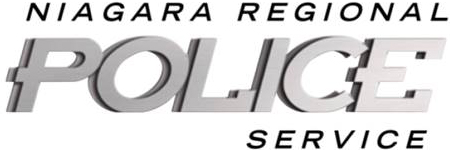
911 and other Emergency/Non-Emergency Numbers
Calling the police is one of the easiest and effective ways that each of us can contribute to a safe community. Yet, many of us are reluctant to do so because of the misconception that the police are too busy or that nothing can be done.
If you are a victim of a crime, report it immediately. The Niagara Regional Police Service is concerned about all crimes. Crime reporting assists the police in identifying areas requiring police services. Most non-emergency calls for service can be dealt with over the telephone, leaving police officers available to respond to emergency situations.
A call for service to the Niagara Regional Police Service is received in a centralized reporting center, where the call is prioritized for either emergency response or non-emergency response, usually by telephone.
For Emergencies
For emergency assistance, dial 9-1-1 on your telephone. An operator will answer your call and request which service is required. You will then be connected to either the police, fire or ambulance service in your area. Please stay on the line until told to hang up. Let the operator control the conversation and answer all questions as best you can. In emergency situations, help is on the way as you are giving the information.
Niagara 9-1-1 and the Emergency Services of Niagara are pleased to announce the delivery of Text with 9-1-1 (T9-1-1) service in the Niagara Region. T9-1-1 technology enables Communications operator to communicate with members of the Deaf/ HoH or non-verbal Community by text messaging. T9-1-1 can be used whenever a Police, Fire Department, Niagara EMS or Niagara Parks Police response is required.
To be eligible to use this service the cell phone must be;
- Registered for T9-1-1 with the DHHSI subscriber's cell phone company in advance
- Capable of sending and receiving text (SMS) messages and activated with a service package that includes text messaging
- Connected to a cellular network.
In order to use the T9-1-1 service, registered users must place a conventional voice call to 9-1-1. The call from a registered cell phone is flagged to the emergency operator, prompting them to initiate a text chat with the registered device. Note that NO cell phone can initiate a text messaging session with a 9-1-1 centre. Unsolicited text messages sent to the number 9-1-1 are not delivered. The open call alongside a T9-1-1 messaging session enables the emergency operator to hear background sounds, and to immediately transition to a voice conversation with any person if the opportunity arises.
T9-1-1 registered callers are asked to be prepared to identify their ability to speak or hear as it is possible to expedite by conducting one side of the communication verbally while messaging the remainder of the communication.
T9-1-1 messaging, unlike conventional 9-1-1 calls, is reliant upon commercial public networks and the technological constraints thereof; Niagara 9-1-1 has no control over the delivery success/timelines of text messaging content.
As with voice calls to 9-1-1, the T9-1-1 service must only be used in the case of emergencies. Additional detail and instructional videos are available at www.textwith911.ca.
For Non-Emergencies
(also see Department Directory)
For non-emergency calls or for general information, do not dial 9-1-1. Use the Niagara Regional Police Service number for your area and follow the instructions given by the automated attendant:
- For St. Catharines, Niagara-on-the-Lake, Niagara Falls, and Thorold, call (905) 688-4111
- For Fort Erie, call (905) 871-2300
- For Pelham, call (905) 735-7811
- For Grimsby, Lincoln and West Lincoln, call (905) 945-2211
- For Welland, Wainfleet and Port Colborne, call (905) 735-7811
For Non-Emergency Calls from members of the DHHSI
- For Non-Emergency Calls to the Police members of the DHHSI community can use the BELL RELAY SERVICE (BRS) to facilitate phone calls. This service can be accessed by contacting the following numbers:
-
1 800 855-0511 (Voice to TTY)
- 711 (TTY to Voice)
- 1 800 855-1155 (TTY to TTY)
-
- The Bell Relay service (BRS) supports communication by phone between hearing people and people who are deaf, deafened, hard of hearing, or those with speech disabilities. Professionally trained operators act as intermediaries to facilitate the call. Bell Relay operators are available 24 hours a day, 7 days a week.
In non-emergency cases, the report will generally be taken over the telephone leaving police patrols available for emergency response.
The Niagara Regional Police Service automated attendant, accessible through the telephone numbers listed here, also allows you to call a member directly either by the member's extension number or by the member's name.
Compliment an NRPS Employee
Our employees take great pride in being recognized by members of the community when they have performed their duties in an exceptional manner. Please take the time to let us know!
Click here to Compliment an NRPS Employee
 I'd Like To
I'd Like To





 Subscribe to this Page
Subscribe to this Page